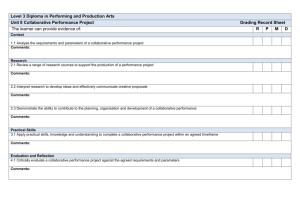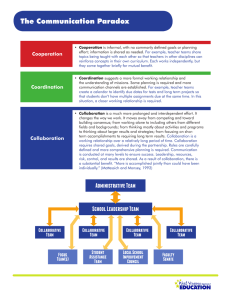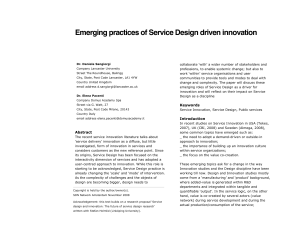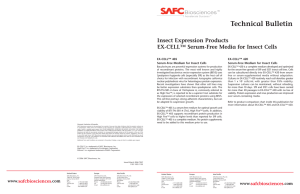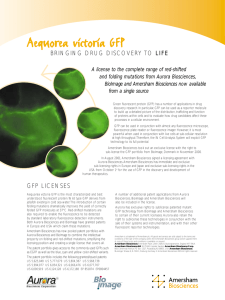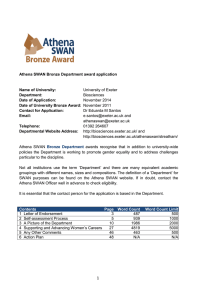IATL Final Report December 2014
advertisement
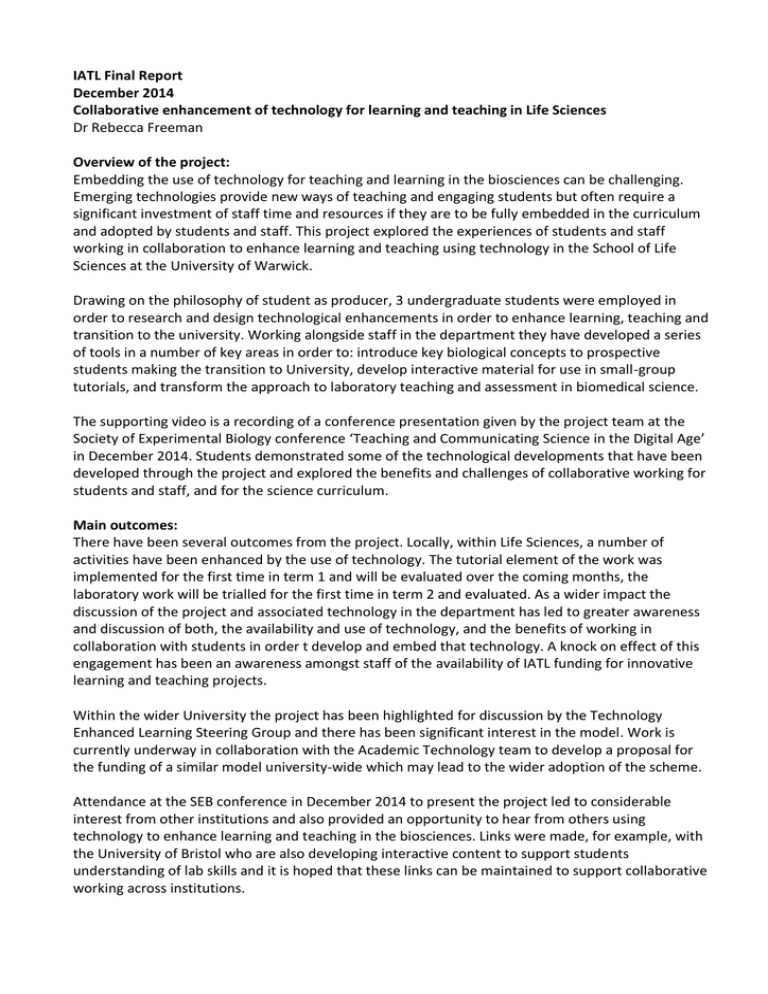
IATL Final Report December 2014 Collaborative enhancement of technology for learning and teaching in Life Sciences Dr Rebecca Freeman Overview of the project: Embedding the use of technology for teaching and learning in the biosciences can be challenging. Emerging technologies provide new ways of teaching and engaging students but often require a significant investment of staff time and resources if they are to be fully embedded in the curriculum and adopted by students and staff. This project explored the experiences of students and staff working in collaboration to enhance learning and teaching using technology in the School of Life Sciences at the University of Warwick. Drawing on the philosophy of student as producer, 3 undergraduate students were employed in order to research and design technological enhancements in order to enhance learning, teaching and transition to the university. Working alongside staff in the department they have developed a series of tools in a number of key areas in order to: introduce key biological concepts to prospective students making the transition to University, develop interactive material for use in small-group tutorials, and transform the approach to laboratory teaching and assessment in biomedical science. The supporting video is a recording of a conference presentation given by the project team at the Society of Experimental Biology conference ‘Teaching and Communicating Science in the Digital Age’ in December 2014. Students demonstrated some of the technological developments that have been developed through the project and explored the benefits and challenges of collaborative working for students and staff, and for the science curriculum. Main outcomes: There have been several outcomes from the project. Locally, within Life Sciences, a number of activities have been enhanced by the use of technology. The tutorial element of the work was implemented for the first time in term 1 and will be evaluated over the coming months, the laboratory work will be trialled for the first time in term 2 and evaluated. As a wider impact the discussion of the project and associated technology in the department has led to greater awareness and discussion of both, the availability and use of technology, and the benefits of working in collaboration with students in order t develop and embed that technology. A knock on effect of this engagement has been an awareness amongst staff of the availability of IATL funding for innovative learning and teaching projects. Within the wider University the project has been highlighted for discussion by the Technology Enhanced Learning Steering Group and there has been significant interest in the model. Work is currently underway in collaboration with the Academic Technology team to develop a proposal for the funding of a similar model university-wide which may lead to the wider adoption of the scheme. Attendance at the SEB conference in December 2014 to present the project led to considerable interest from other institutions and also provided an opportunity to hear from others using technology to enhance learning and teaching in the biosciences. Links were made, for example, with the University of Bristol who are also developing interactive content to support students understanding of lab skills and it is hoped that these links can be maintained to support collaborative working across institutions.

